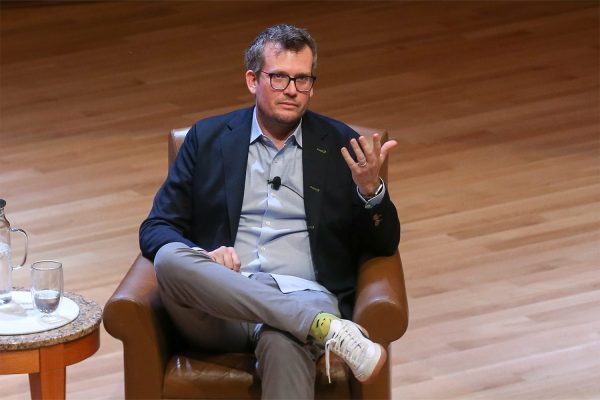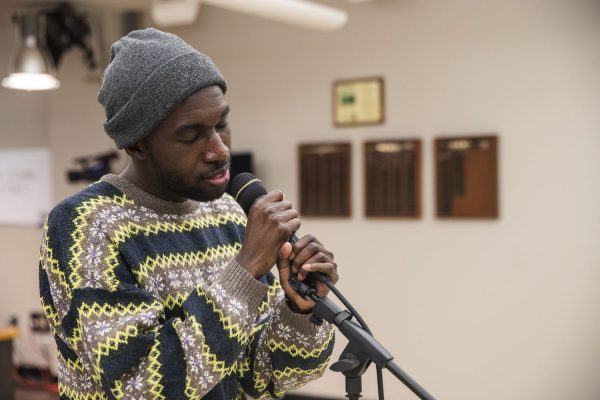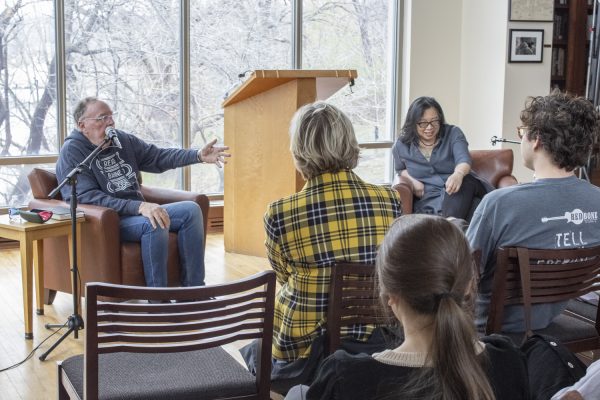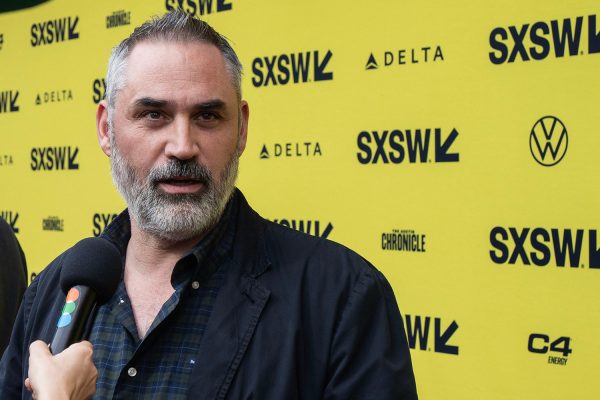Ask the Author: John A. List
Economist John List is used to academic writing, but recently explored a more down-to-earth writing style in his new book, ‘The Voltage Effect.’
Contributed Photo by John Boehm from Boehm Photography
April 12, 2022
John A. List is the Kenneth C. Griffin Distinguished Service Professor of Economics at the University of Chicago. He is also the chief economist for Walmart. List works with state and federal governments to help them make better decisions.
List is used to academic writing, but recently came out with a book called The Voltage Effect, released in Feb. 2022, and has another book titled The Why Axis, released in 2013. He spoke about his work and his writing at the University of Iowa’s Iowa Memorial Union on March 24 as part of his ongoing book tour.
The Daily Iowan: How was the writing process considering that you are focused on economics as opposed to being a writer?
List: I have focused on economics, but as an economist, you have to write a lot for academic journals. Now that’s one kind of writing. I’ve also written textbooks — a ‘Principles of Economics’ textbook, I wrote with two co-authors and that’s another kind of writing, but this kind of writing in The Voltage Effect is altogether different than those. Yes, this kind of writing is more about how to tell a narrative or tell a story that is at once understandable and at once helps to teach people and that’s hard, because I typically don’t write like that when you write an academic paper. There’s a bunch of economies in there. There’s a bunch of jargon, there’s a bunch of math equations. There’s a bunch of Greek notation, and you have to take all of that out and tell stories in a popular book, because that’s what will resonate with people. So that’s the art. I think of writing a popular book and that’s the hard part. It takes a lot of revisions and a lot of outside counsel, people telling you what they think about the book. At the end of the day, I’m trying to write this book for people like my brother and dad who are truck drivers. I want the truck drivers to be able to read it and understand it and actually learn from it. And that is a very different kind of writing. It’s a bit of art, to be honest.
RELATED: Ask the Author: Mike Meginnis
DI: What would you say is the most difficult part of your writing process?
List: A title is the most difficult for me. Just to find a title that’s descriptive and attractive for people, that people will like. I also think connecting everything in a way — so you know, you have nine chapters in the book, but you also want a thread, a connection that links all of the chapters in a way that you want the reader to not only read chapters one, two, three, and maybe nine, you want them to read all the chapters, and understand that after they read all of them. The sum is much greater than the parts. I think that part of writing is more difficult, because I’m used to just writing a one-off academic paper. So it’s an academic paper that’s 25 or 30 pages long, and you tell the story, and that’s it — but here you’re writing nine separate academic papers, but you’re trying to link them all up in a narrative that you want the reader to come along with the story. So I think that’s the second hardest part after finding a title.
DI: What encouraged you to write your current and previous book?
List: I read a lot of academic papers, and the bad part of writing an academic paper is a lot of people don’t read them because the lay audience never goes into an academic journal and reads the academic papers, it just never happens. So occasionally, you get on a topic where you write a number of academic papers, like I have in scaling. So I’ve written a number of academic papers on the economics of scaling, how to scale ideas. And then I stopped and said, ‘Do you want to continue to write academic papers in this area? That’s great if you do, or do you want to take stock and write a popular book that non-academics can read, and understand what’s going on in this academic literature.’ In essence, you’re trying to unlock the knowledge that you’ve created in the academic world. You want to unlock that so everyone can learn from it, not just the academics, and this has happened twice in my career. It happened with The Why Axis. I said, ‘Look, I’ve created enough to where I want to unlock it now, and I want the world to know about the secrets that were locked in these academic journals.’ And after doing the work in scaling I felt the same way, I felt it’s time to unlock it, and hopefully teach the world about what you’ve learned and what you’ve written about. It’s such an important issue that I decided to pause my academic research and do this. So now I’m on this book tour. You know, you write a book, it takes six to nine months to write it. The hardest part about writing a book, as I mentioned, it’s the title, but writing the book isn’t that hard. It’s actually getting people to read it. That’s the hardest part of the whole process is trying to get people to read your book.













